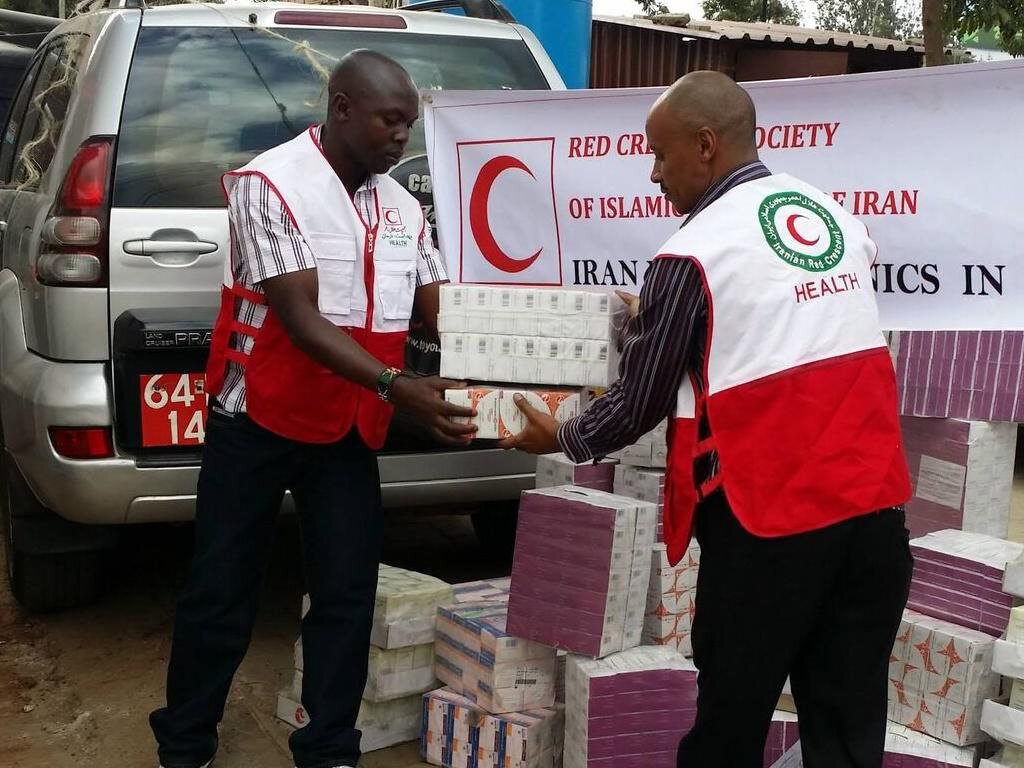Tehran – The Sierra Leone Red Cross Society has expressed interest in expanding its cooperation with Iran’s Red Crescent Association (IRCS) in the treatment and rehabilitation sector.
Sahr Christian Fayia, chairman of the Sierra Leone Red Cross Society, and Kpawuru et Sandy, executive director of the Sierra Leone Red Cross Society, held meetings in Africa with Babak Mahmoudi, chief of the IRCS rescue and rescue organization.
Both sides discussed ways to broaden collaboration. They signed a memorandum and expanded cooperation between the two societies for another 15 years.
In praise of the IRC for providing health services to vulnerable people, Sierra Leone officials have sought to deepen relationships between the rehabilitation and education sectors. Given that Sierra Leone is a risk-prone country, they also asked the IRC to share their expertise and experience in relief and rescue services as well as crisis management.
On his part, Mahmoudi emphasized the IRC’s activities to promote medical services. It will boost exports of pharmaceuticals, medical devices and supplies. Expanding health, treatment and rehabilitation services. Provide educational services. Equipped with a healthcare center to provide special services.
Referring to some issues at the IRCS Medical Center in Sierra Leone, Kayban Assadpur, head of the IRCS Medical Center in Sierra Leone, said the Red Cross Society needs to support the IRC.
Over the past three years, IRCS has signed a memorandum of understanding with the Red Crescent Associations of 19 countries, expanding and strengthening humanitarian and rescue and relief efforts cooperation.
The IRC looks forward to supporting cooperation with other societies to promote awareness, resilience and capabilities of society facing disasters and to promote the provision of relief services.
With the support of ICRC, IRCS is ready to share expertise
IRCS Head Pirhossein Kolivand announced that he is ready to share his scientific and educational experience and administrative expertise with other Red Crescent Associations, along with the contributions of the International Committee of the Red Cross (ICRC).
Koliband noted that the IRCS is willing to share expertise in a variety of fields, including providing screening, providing rehabilitation services, and training individuals in areas living in affected areas with mines, training them in how to identify and avoid mine hazards.
Officials made a speech at a meeting with Nicolas von Arx, director of operations in North Africa and the Middle East, Vincent Kassad’s Iranian ICRC.
Kolivand also called on the ICRC to hold a parliament in commemoration of the efforts of international rescuers who lost their lives to save others, and proposed to hold a parliament. By supporting the measures and humanitarian activities of the Red Crescent Society, he noted, the ICRC will increase the motivation among them.
Referring to the unilateral sanctions, the official said, “The International Committee of the Red Cross hopes that it will play a role in promoting the import of medicine and medical devices by the Iranian Red Crescent Association.”
Officials asked the ICRC to equip the red crescent helicopter with night vision cameras to improve their capabilities in rescue operations.
mt/mg

